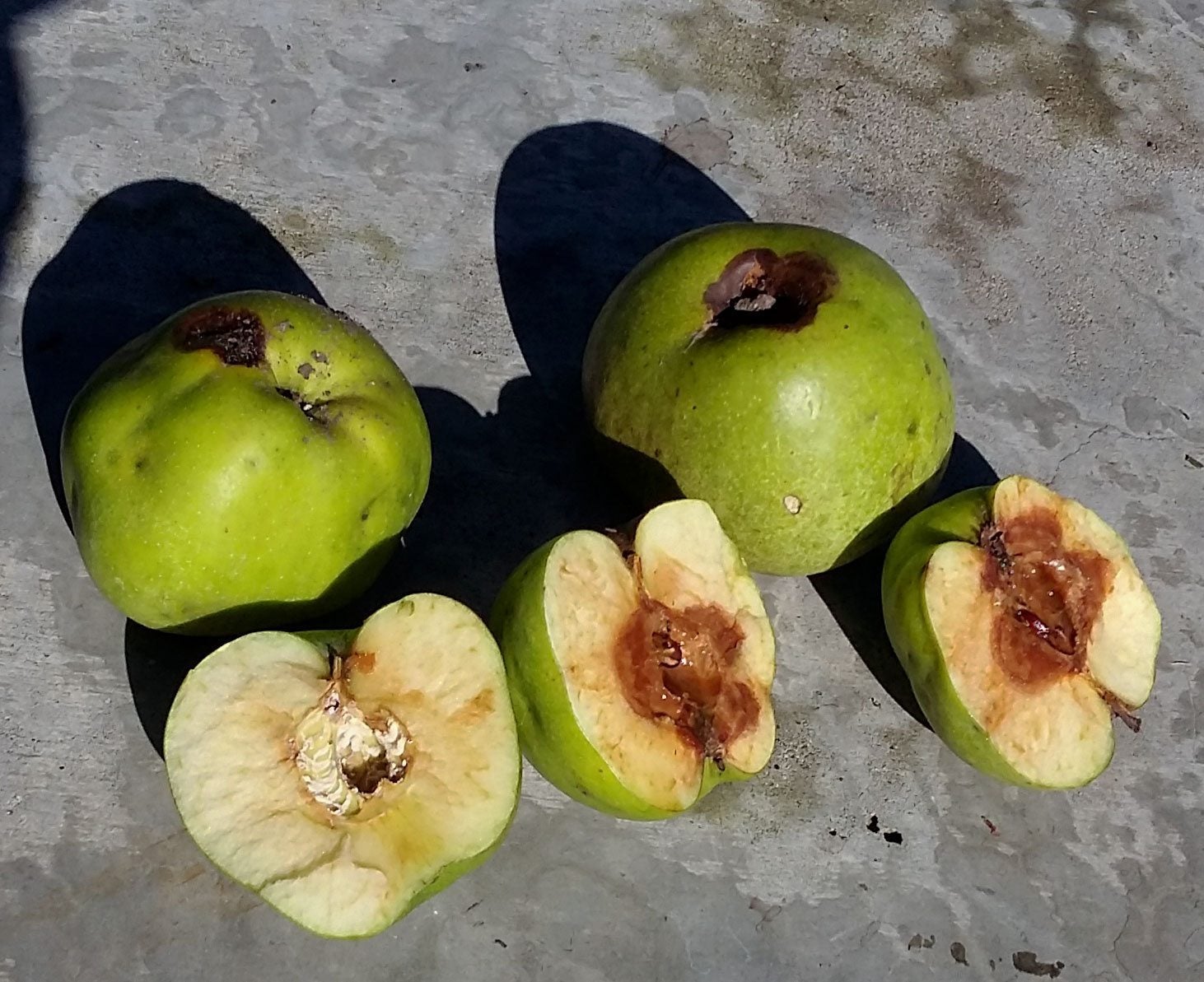Apple Maggot Prevention: Apple Maggot Signs And Control


Sign up for the Gardening Know How newsletter today and receive a free copy of our e-book "How to Grow Delicious Tomatoes".
You are now subscribed
Your newsletter sign-up was successful
Apple maggots can ruin an entire crop, leaving you at a loss as to what to do. Learning how to recognize the signs and taking the appropriate preventative measures beforehand is essential in fighting off these pests.
Apple Maggot Signs
While apple trees are the main host for apple maggot pests, they may also be found in any of the following:
The most susceptible apple varieties are the early maturing types as well as those with thin skins. While other worms affecting apples may be confused with these pests, you can normally tell them apart simply by taking a closer look. Caterpillar worms, which are generally larger, will usually feed deeper—to the core itself. Apple maggots, which are the small about ¼ inch (6 mm.) larva of fruit flies that resemble maggots, typically feed on the flesh, tunneling throughout the fruit. Evidence of apple maggots can be seen as tiny pin pricks, or dimples, in the skin. In addition, affected apples will begin to decay rather quickly, becoming soft and rotten prior to falling from the tree. As the maggots grow and tunnel, you will find the tell-tale brown trails winding throughout the fruit when cut open.
Apple Maggot Prevention and Treatment
The best way to prevent attacks is by keeping everything cleaned up by picking apples regularly, especially those that fall from the tree. Unfortunately, once affected, the only treatment is through chemical control, which is normally targeted toward the adult fruit flies. The specific types and availability of products for apple maggot control can usually be obtained through your local county extension office. Affected trees are sprayed from around mid-July to pre-harvest with continual applications, per product instructions, or mixed using 3 cups (710 mL.) of kaolin clay to every 1 gallon (4 L.) of water every seven to ten days. Another apple maggot control product, which is more natural, is kaolin clay. This is often used as a preventative measure, as it creates a film on the fruit that insect pests find irritating. As a result, they tend to avoid any trees/plants that have been treated with kaolin clay. Spraying should be done in mid to late June and reapplied every seven to ten days. Be sure to fully saturate the tree.
How to Trap the Apple Maggot
Apple maggot fly traps are also available for preventing these pests. These can be purchased from most garden centers or through agricultural suppliers. Apple maggot fly traps are usually set in spring (June) and monitored throughout fall (September). Place one trap in trees less than 8 feet (2 m.) tall and about two to four traps in larger trees. Traps should be cleaned weekly and may require replacement monthly.
Home Remedies to Catch Apple Maggots
Another idea on how to trap the apple maggot is through the use of homemade methods. For instance, you can take some red balls (Styrofoam works well)—about the size of an apple—and coat them with a sticky material, such as molasses. Hang these fake apples on the tree (about four to six per tree, depending on size) at shoulder height. This should attract the fruit flies, which will stick to the balls and promptly be discarded once they're full. You can also mix 1 part molasses to 9 parts water with a small amount of yeast. Pour this into several wide-mouthed jars and allow them to become fermented (ready once bubbling subsides). Hang the jars on the strongest limbs and the fruit flies will become trapped inside.
Sign up for the Gardening Know How newsletter today and receive a free copy of our e-book "How to Grow Delicious Tomatoes".

Nikki Tilley has been gardening for nearly three decades. The former Senior Editor and Archivist of Gardening Know How, Nikki has also authored six gardening books.